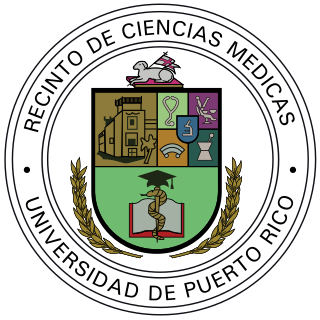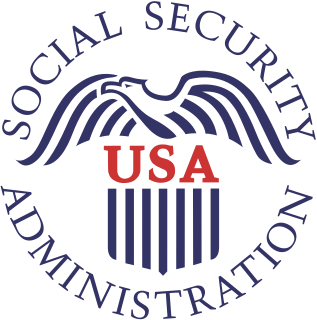
The government of Puerto Rico is a republican form of government with separation of powers, subject to the jurisdiction and sovereignty of the United States. Article I of the Constitution of Puerto Rico defines the government and its political power and authority pursuant to U.S. Pub.L. 82–447. Said law mandated the establishment of a local constitution due to Puerto Rico's political status as a commonwealth of the United States. Ultimately, the powers of the government of Puerto Rico are all delegated by Congress and lack full protection under the U.S. Constitution. Because of this, the head of state of Puerto Rico is the President of the United States.

The Supplemental Nutrition Assistance Program (SNAP), formerly and commonly known as the Food Stamp Program, provides food-purchasing assistance for low- and no-income people living in the United States. It is a federal aid program, administered by the United States Department of Agriculture, under the Food and Nutrition Service (FNS), though benefits are distributed by each U.S. state's Division of Social Services or Children and Family Services.

Electronic benefit transfer (EBT) is an electronic system that allows state welfare departments to issue benefits via a magnetically encoded payment card, used in the United States. The average monthly EBT payout is $125 per participant.

The University of Puerto Rico, Humacao Campus is a public state university in Humacao, Puerto Rico. The campus is home to the UPRH Astronomical Observatory, and graduates more majors in chemistry, physics, and mathematics than any other higher education institution island-wide.

The University of Puerto Rico, Medical Sciences Campus —or Universidad de Puerto Rico, Recinto de Ciencias Médicas (UPR-RCM) in Spanish— is a state university located in San Juan, Puerto Rico. It is one of the eleven campuses of the University of Puerto Rico. The Medical Sciences Campus is located on the grounds of the Puerto Rico Medical Center and grants degrees in all the principal fields of health sciences.
The Special Supplemental Nutrition Program for Women, Infants, and Children (WIC) is a federal assistance program of the Food and Nutrition Service (FNS) of the United States Department of Agriculture (USDA) for healthcare and nutrition of low-income pregnant women, breastfeeding women, and children under the age of five. Their mission is to be a partner with other services that are key to childhood and family well-being The basic eligibility requirement is a family income below 185% of the federal poverty level. Most states allow automatic income eligibility, where a person or family participating in certain benefits programs, such as the Supplemental Nutrition Assistance Program, Medicaid, or Temporary Assistance for Needy Families, may automatically meet the income eligibility requirements. Currently, WIC serves 53 percent of all infants born in the United States.
In the United States, federal assistance, also known as federal aid, federal benefits, or federal funds, is defined as any federal program, project, service, or activity provided by the federal government that directly assists domestic governments, organizations, or individuals in the areas of education, health, public safety, public welfare, and public works, among others.
Public welfare in Puerto Rico is a system of nutrition assistance, public health, education, and subsidized public housing, among others, provided to the impoverished population of the island. It is mainly funded by United States Federal assistance and by local government funds.
The Child and Adult Care Food Program (CACFP) is a type of United States federal assistance provided by the United States Department of Agriculture (USDA) to states in order to provide a daily subsidized food service for an estimated 3.3 million children and 120,000 elderly or mentally or physically impaired adults in non-residential, day-care settings. It is a branch within the Policy and Program Development Division of the Child nutrition programs, along with the School Programs Branch, which runs the National School Lunch Program. The program is commonly referred to as the Child Care, Child Care Food, Adult Care, or Adult Care Food Program, and is often operating in conjunction with other child and adult day-care programs, such as the Head Start. Its federal identification number, or CFDA number, is 10.558. Section 17 of the National School Lunch Act, and USDA issues the program regulations under 7 CFR part 226.

The Uniformed and Overseas Citizens Absentee Voting Act (UOCAVA), P.L. 99-410, 42 U.S.C. §§ 1973ff–1973ff-6, 39 U.S.C. § 3406, 18 U.S.C. §§ 608–609, is a United States federal law dealing with elections and voting rights for United States citizens residing overseas. The act requires that all U.S. states, the District of Columbia, Puerto Rico, Guam, American Samoa, and the U.S. Virgin Islands allow certain U.S. citizens to register to vote and to vote by absentee ballot in federal elections. The act is Public Law 99-410 and was signed into law by President Ronald Reagan on August 28, 1986.
The Puerto Rico Health Reform —Spanish: Reforma de Salud de Puerto Rico, and locally referred to simply as La Reforma — is a government-run program which provides medical and healthcare services to indigent and impoverished citizens of Puerto Rico by means of contracting private health insurance companies, as opposed to the traditional system of government-owned hospitals and emergency centers. The Reform is administered by the Puerto Rico Health Insurance Administration and, as of December 31, 2005, provides healthcare coverage to over 1.5 million Puerto Ricans, equal to 37.5% of the island population.
The Texas Department of Agriculture (TDA) is a state agency within the state of Texas, which is responsible for matters pertaining to agriculture, rural community affairs, and related matters.

Social programs in the United States are welfare subsidies designed to meet needs of the American population. Federal and state welfare programs include cash assistance, healthcare and medical provisions, food assistance, housing subsidies, energy and utilities subsidies, education and childcare assistance, and subsidies and assistance for other basic services. Private provisions from employers, either mandated by policy or voluntary, also provide similar social welfare benefits.

The Food Stamp Act provided permanent legislative authority to the Food Stamp Program, which had been administratively implemented on a pilot basis in 1962. On August 31, 1964 it was signed into law by President Lyndon B. Johnson. It was later replaced and completely rewritten and revised by the food stamp provisions of the Food and Agriculture Act of 1977, which eliminated the purchase requirement and simplified eligibility requirements. Amendments were made to this Act in 1981-82, 1984-85, 1988, 1990, 1994, 1996, 1997, 1998 and 2002 (most recently by Title IV of the 2002 farm bill.
The Food Distribution Program on Indian Reservations (FDPIR) allows Indian Tribal Organizations (ITOs) to operate a food distribution program as an alternative to the Food Stamp Program for those living on or near an Indian reservation. The Food and Nutrition Service (FNS), an agency of the U.S. Department of Agriculture, administers FDPIR at the Federal level, and is locally operated through ITOs or State agencies(SAs). Eligibility for benefits is similar to the food stamp (SNAP) program, and funds are drawn from food stamp appropriations. Food Distribution Program Nutrition Education (FDPNR) grants are also awarded to participating FDPIR ITOs. These grants are awarded to support nutrition education activities that are culturally relevant, promoting healthy food choices, and promoting physical activity among participants.
A referendum on the political status of Puerto Rico was held on 13 December 1998. Voters were given the choice between statehood, independence, free association, being a territorial commonwealth, or none of the given options. A majority voted for the latter, with a turnout of 71.3%.

The Farmers' Market Nutrition Program (FMNP) is a federal assistance program in the United States associated with the Special Supplemental Nutrition Program for Women, Infants and Children that provides fresh, unprepared, locally grown fruits and vegetables and nutrition education to WIC participants. Women, infants and children that have been certified to receive WIC program benefits or who are on a waiting list for WIC certification are eligible to participate in the FMNP.











